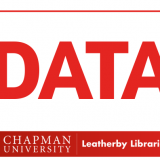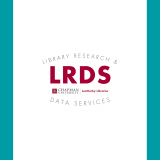Orange County Japanese American Youths Scrapbooks New archive added to the Frank Mt. Pleasant Library of Special Collection & Archives
December 1, 2020
One of the primary goals of the Frank Mt. Pleasant Library of Special Collections & Archives is to preserve materials related to the history of Orange County, which has been the home of Chapman University since 1954. The newest archive added to Special Collections and accessible to the public through the Chapman University Digital Commons, highlights the history of the Japanese American youth culture in Orange County in the 1950s and 1960s. This collection is comprised of the scrapbooks of the Orange County Japanese American Youths (OC JAYs) from 1954 to 1963. The collection can be viewed here.
Annie Tang, Coordinator of Special Collections & Archives, described the collection and its significance:
This collection contains pages from a scrapbook compiled by members of the Orange County Japanese American Youths (OC JAYs) organization, prominent in the 1950s to 1960s. OC JAYs was founded in 1954, under the organizational umbrella of the Japanese American Citizens League (JACL). Many members were teenagers and early adults when they contributed photographs, clippings (including some from The Rafu Shimpo, a Japanese-English language newspaper based in Little Tokyo, Los Angeles, and The Santana Wind, the newspaper published by the Orange County JACL), correspondence, and pieces of ephemera regarding their organizational social life. Events included intercultural meetings with Latino/Latinx youth, wider JACL-sponsored events, “Hi-Co” conferences, picnics, and sports games. Some pages even include guest registration for visitors to an OC JAYs event. Notable individuals photographed include Louis Zamperini (at the 1959-1960 Installation Banquet), and Walter Knott (Installation Banquet, 1961-1962).
Over the past few years, I have cultivated relationships with the Japanese American community in Orange County, in my professional interest of seeking out archival history of persons of color. One of my contacts introduced me to a former member of the OC JAYs, who wanted to donate his organization’s scrapbook to Chapman University, on behalf of his fellow members who still keep in contact with each other. The volume documents the lives of these teenage Americans in the post-World War II period, who are attempting to rebuild their world after many of them, or their families, were incarcerated in the internment camps as children. You would not know these past injustices occurred though, with the smiley faces in the black-and-white photos and the stirring accomplishments noted in the newspaper clippings. It truly was a pleasure to acquire this item as an Asian American archivist who wants to preserve a bit of her community’s history.
Archivist Wendy Gonaver, who performed the majority of the digitization work to make this collection accessible, spoke with us about the digitization process, interesting people and stories she came across while working through the collection, and the importance of the collection to our archives:
When we begin digitizing a collection, we typically start with images in TIFF or JPEG format. I convert them to PDF files then clean them up. I then add the metadata that makes them discoverable online. This includes the names of people, places, and organizations pictured in the photos and relevant subjects. The names and subjects must match the records of the Library of Congress, using the LOC Name Authority and Subject Headings databases. Finally, I convert the PDF to a PDFA (archival pdf–cannot be edited), and then send it to Brian Song, our Digital Archives Technician.
Most of the members of the OC JAYs did not go on to have careers or lead lives that make it possible to find them in the Library of Congress database. And, of course, the bulk of their lives occurred way before the internet, so searching for the names online usually yielded nothing. This makes the scrapbook especially valuable, although it limits the metadata that I can include. But I was able to find more info about two individuals: James Kanno, the first Mayor of Fountain Valley, and Lynell Tanigoshi, who had a brief career in film before becoming an academic.
Because of my academic research interests in the history of psychiatry in the United States, I was intrigued to learn that several members of the OC JAYs had been incarcerated at a camp in Poston, Arizona during WWII. This is the same camp where a medical doctor named Alexander Leighton conducted anthropological research for the US State Department about community disintegration and morale. Leighton and his two wives went on to become leading figures in the subfield of cross-cultural or transcultural psychiatry after the war. In general, I was taken with all the ways in which these teens–many of whom experienced childhoods in carceral camps–worked so hard to demonstrate their Americanness and patriotism in the 1950s while also maintaining connection to Japanese culture.
The OC JAYs scrapbook is a valuable addition to Special Collections. It attests to the county’s agricultural past, as many of the members were the children of farmers, and the centrality of Japanese Americans to that past. Additionally, the scrapbook provides a unique view of the vibrant social lives of midcentury Japanese American teenagers, many of whom had experienced incarceration as children during the Second World War. The scrapbook also complements our other collections, such as the Munemitsu-Sasaki family papers.
The Leatherby Libraries is thrilled to add this collection, an important piece of Orange County history, to our archives. Check it out here.



